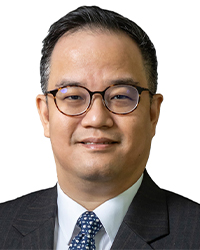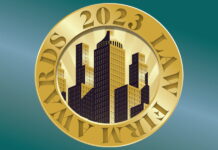The island nation is ringing in tax changes to keep it competitive, pay for an energy transition, and align with new international standards.
Singapore’s recent tax changes have a broad range of drivers: the need to align with international rules; to replenish government reserves and support future national needs; fund energy transition efforts; and maintain business appeal amid global uncertainties. Following are key highlights of what’s arriving.
INTERNATIONAL RULES

Founding Principal
WTS Taxise
Singapore
Tel: +65 6304 7978
Email:eugene.lim@taxiseasia.com
BEPS 2.0. Singapore announced it intends to comply with Pillar 2 of the OECD Base Erosion Profit Shifting (BEPS) project by 1 January 2025, meaning it will introduce the income inclusion rule, qualified domestic minimum top-up tax and under-taxed profit rule.
The Inland Revenue Authority of Singapore (IRAS) is reviewing Singapore’s existing and planned tax incentives and grants – whether they are regarded as “qualified refundable tax credits” (QRTCs), which do not impact the jurisdictional effective tax rate for multinational entities (MNEs).
MNEs should closely monitor these developments if they have an annual turnover of EUR750 million (USD824.6 million) in the past two out of four years and fit the following profiles:
- Headquartered in Singapore;
- Have Singapore entities enjoying Singapore tax incentives and grants; and
- Have ultimate parent entities in countries which have not implemented Pillar 2 rules, and with entities in Singapore that hold subsidiaries overseas.
Foreign gains. The Income Tax (Amendment) Act 2023, gazetted on 30 October 2023, introduced a new section 10L. This addresses taxation of gains from the disposal of foreign assets (movable or immovable), that are received or deemed received in Singapore by MNE group entities. The gains will be treated as income chargeable to tax at 17% from 1 January 2024 unless the entity has economic substance in Singapore.

Associate Principal
WTS Taxise
Singapore
Tel: +65 6304 5390
Email: christine.schwarzl@taxiseasia.com
The IRAS will consider sector-specific circumstances and introduce an advance ruling framework. Section 10L will not apply to certain entities, including prescribed financial institutions and entities exempt from income tax under specified incentives. MNEs with Singapore entities that hold assets in foreign jurisdictions should review these new rules to determine the tax implications for future disposals.
Transfer Pricing (TP). The IRAS has indicated that a seventh edition of the TP guidelines will be published in early 2024, with greater clarity and alignment with the OECD TP Guidelines for Multinational Enterprises and Tax Administrations 2022.
Further clarity is expected on the analysis of DEMPE (development, enhancement, maintenance, protection and exploitation) functions by MNE group entities, to determine their contribution in the development and exploitation of intangible assets.
The improved alignment with the OECD TP guidelines should enhance transparency and mitigate TP dispute risks, providing greater tax certainty in Singapore.
Documenting TP. Since the 2019 year of assessment (YA2019), TP documentation (TPD) preparation is mandatory where a taxpayer’s annual gross revenue from its trade or business in a basis period exceeds SGD10 million (USD7.5 million) or where it was required to prepare TPD in the prior year. The TPD must be prepared on a contemporaneous basis (no later than the tax return filing due date), so penalties and surcharges may apply for non-compliance or TP adjustments. The TPD is a requirement for mutual agreement procedures and advance pricing agreement requests.
RAISING REVENUE

Associate
WTS Taxise
Singapore
Tel: +65 8505 5887
Email: mei.yeo@taxiseasia.com
Rate increases. The following taxes have been introduced or increased to replenish Singapore’s reserves following covid support expenditure, to support the ageing population and to cool residential property prices.
- GST will be raised to 9%, effective 1 January 2024.
- Personal income tax will be increased, effective from YA2024, to 23% for the income bracket of SGD500,001 to SGD1 million and 24% on the excess.
- Buyer’s stamp duty for higher-value properties has increased, effective 15 February 2023: 5% for residential properties valued at SGD1,500,001 to SGD3 million, and 6% on the excess; for non-residential properties, 4% for SGD1 million to SGD1.5 million and 5% on the excess.
- Additional buyer’s stamp duty on residential properties has also increased effective 27 April 2023: 60% for foreigners; 20% and 30% for second and third residential properties, respectively, for Singaporeans; and similarly, 30% and 35% for permanent residents.
- Property tax has been increased for non-owner-occupied residential properties (12% to 36%) and owner-occupied residential properties (6% to 32% for the annual value portion over SGD30,000).
- Higher additional registration fee rates, from 190% to 320%, have been introduced for higher-end and luxury cars.
TAX AUDITS
Audit landscape. The IRAS reported it recovered SGD79 million in taxes and penalties from July 2020 to June 2023, from companies with errors in corporate income tax returns filed for YA2019 to YA2021. Common tax filing mistakes included understatement or omission of income, incorrect capital allowance claims, failure to apply the arm’s length principle for related party services, poor record-keeping and incorrect claims.
Other tax audit areas include claiming private or non-deductible expenses, claiming tax exemption of foreign sourced dividends, abusive tax arrangements set up to benefit from tax incentives, and anti-avoidance of stamp duty and income tax.
SUSTAINABILITY
Carbon tax. To support Singapore’s target of net zero greenhouse gas emissions by 2050, the carbon tax on facilities that annually emit at least 25,000 tonnes CO2e of greenhouse gas emissions will be raised from SGD5/tonne to SGD25/tonne in 2024 and 2025, and SGD45/tonne in 2026 and 2027, with a view to reaching SGD50-80/tonne by 2030. The funds will be used to bolster decarbonisation initiatives, shift to a green economy, and defray transition costs for businesses and households.
REMAINING COMPETITIVE
Tax incentives remain central to the island state’s tax policy, particularly for smaller MNE groups, notwithstanding the reduced international scope for tax competition due to the Global Anti-Base Erosion (GloBE) rules.
For larger MNE groups, Singapore may reevaluate existing tax incentives or introduce QRTCs aligned with the GloBE rules, while still offering attractive propositions for large corporations.
The 2023 Budget introduced incentives to promote international expansion, technological advancement and infrastructural development.
- The Enterprise Innovation Scheme will encourage businesses to engage in R&D, innovation and capability development activities. It provides a 400% tax deduction for qualifying expenditure, a non-taxable cash payout up to SGD20,000, and an extension of sunset dates for IP protection, R&D and IP rights licensing deductions to YA2028.
- The Philanthropy Tax Incentive Scheme for Family Offices is to strengthen Singapore’s position as a regional philanthropy hub, encouraging family offices to anchor their giving operations in the island nation. This incentive provides a 100% tax deduction for overseas donations, capped at 40% of the donor’s statutory income. To qualify, donors must be managing a fund under the Monetary Authority of Singapore’s section 13O or 13U schemes and meet eligibility conditions.
- The Double Tax Deduction for Internationalisation Scheme (to 31 December 2025) provides a 200% deduction on qualifying expansion and investment development expenses, subject to prior approval.
- There is accelerated write-off of plant and machinery acquisition costs during two assessment years for businesses undergoing business restructuring in YA2024, where capital expenditure is incurred. Under the accelerated capital allowance, 75% of the incurred cost is written off in the first year (YA2024), and 25% in the second year (YA2025).
- An option has been established to accelerate the deduction for renovation or refurbishment expenditure for businesses incurring qualifying expenditure in YA2024. Companies may deduct the full amount for that YA, capped at SGD300,000 for every relevant period of three consecutive assessment years. Currently, businesses may claim tax deductions over three consecutive YAs on a straight-line basis, capped at SGD300,000 over the three YAs.
- The IP Development Incentive provides concessionary tax rates of 5% or 10% on a percentage of qualifying IP income to 31 December 2028.
- The Qualifying Debt Securities Scheme, extended to 31 December 2028 and refined, offers a 10% concessionary tax rate for qualifying companies and bodies of persons in Singapore, and tax exemptions for qualifying non-residents and individuals. The scope of qualifying income now includes all payments for early redemption of a QDS.
- The Approved Special Purpose Vehicle (ASPV) Engaged in Asset Securitisation Transactions scheme, extended to 31 December 2028, exempts from tax income derived by an ASPV engaged in asset securitisation transactions in Singapore. Further, a new sub-scheme named ASPV (Covered Bonds) has been introduced, effective from 15 February 2023 to 31 December 2028.
 TAXISE ASIA LLC (WTS TAXISE)
TAXISE ASIA LLC (WTS TAXISE)61 Robinson Road
#17-01A Singapore 068893
Tel: +65 63047972
Email: info@taxiseasia.com
www.taxiseasia.com






























